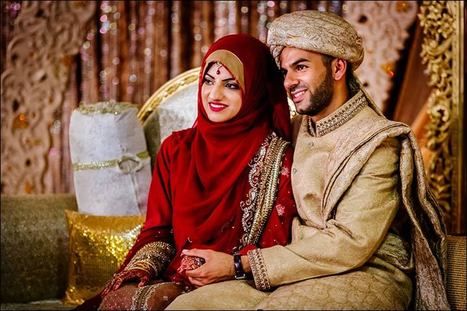Expert Family Lawyers Including Divorce Lawyers for Khula and Talaq (Divorce) in Karachi, Islamabad, and Lahore, Pakistan
Expert family lawyers in Karachi, Islamabad, & Lahore offering Khula, Talaq (Divorce) services
Expert Divorce Lawyers For Khula (Divorce): Our Family law experts handle divorces & khula. Karachi’s best family/divorce lawyers
Family Law is the area in which our Divorce & Family Lawyers have experience for decades!
Family law is the area of law concerned with family and domestic matters. In family law, issues such as marriage, separation, divorce, adoption, child custody, child support, child protection, and guardianship are addressed. With decades of experience, our Divorce & Family Lawyers specialize in Family Law!
Family lawyers work with clients on a range of legal matters, including succession, inheritance, property ownership agreements, and estate settlements. Right Law Associates’ Family & Divorce Section in Karachi, Islamabad and Lahore is composed of the most experienced divorce and family lawyers. Our CEO has been practising and advocating in criminal courts and family courts for over 37 years. With the help of highly qualified and experienced lawyers, we can help you get separated from your spouse at an affordable price.
Domestic violence victims receive legal assistance from divorce lawyers and are helped to rebuild their lives. As one of Pakistan’s top family law firms, we offer a wide range of services.
Clients throughout Pakistan have appreciated our legal aid services in family and divorce law. Our services include preparing and submitting documents, negotiating with parties, and representing you in court. Our phone number can be reached from 10 am to 1 am, or you can send us a WhatsApp message.
The Muslim family law introduced in British India survived after the partition of India in 1947. A seven-member Commission on Marriage and Family Laws was established in 1955 with the mandate of examining the personal status laws governing the newly formed state and making recommendations for reforms.
Marriage and Family Laws Commission Report, 1961, contains a few provisions that were adopted by the Muslim Family Laws Ordinance, 1961. According to the report, divorce laws and inheritance laws for orphaned grandchildren should be reformed. Besides enforcing compulsory marriage registration, it also introduced restrictions on polygamy and reformed laws on dower and maintenance after divorce. Laws regarding marriage age were also amended. Pakistan’s first constitution was promulgated in 1956. As part of this act, a repugnance clause was included. In the clause, it was stated that no laws would be enacted that were in violation of Islamic injunctions. All existing laws would be reviewed in light of this provision in order to implement any necessary amendments. Throughout subsequent constitutions, this repugnance provision has been retained and even strengthened. Marriage, divorce or talaq, khula, wife maintenance, child custody, child maintenance, etc., fall under family law. The following is a detailed analysis of these aforementioned family laws:

Islamic Family Law Ordinance: Marriage Law
The Muslim Family Laws Ordinance (MFLO) introduced changes to classical Muslim law in 1961. In this reform, marriages and divorces will be registered, orphaned grandchildren’s inheritance rights will be protected, polygamy will be restricted, all talaq (except for the third) will be deemed, single and revocable court procedures regarding maintenance and divorce will be formalized, and if mahr has been misused, it can be recovered. Marriages that do not register are not invalid. If you violate the registration requirement, you may be subject to sanctions. Registration of marriages is mandatory under the MFLO, and failure to register can result in fines or imprisonment. When Muslim marriages are arranged according to religious rites, they remain legal.
In Pakistan, both males and females must be 18 years of age to get married. Marriages between underage people are strictly prohibited by law. The court said that an adult Hanafi Muslim woman can enter into a marriage contract without the consent of her wali since one of the prerequisites for a valid marriage contract is the consent of the woman, not that of the wali.
Marriage Dissolutions (Talaq), Divorces (Talaq) & Khulas
Every talaq uttered, in whatever form (except the third) is single and revocable. Implementing formal reconciliation, notification, and recovery procedures for Mahr. The 1960s and 1970s were characterized by an absence of notification resulting in most Talaqs being invalidated. Talaq has also been reformed according to classical law. When a talaq has been pronounced, the divorcing husband is required to notify the Union Council chairman in writing as soon as possible.

Dissolution of Marriage or Divorce by Judiciary
There are a number of grounds on which women may file a dissolution of marriage or judicial divorce suit:
- After four years of abandonment by her husband
- Maintaining for two years is not possible
- A husband contracts a polygamous marriage in violation of established legal procedures,
- The husband was sentenced to seven years in prison,
- The husband has failed to fulfil his marital responsibilities for three years,
- During their marriage, the husband has continued to be impotent
- While the husband was sane for two years, he suffered from insanity or illnesses
- If a woman contracts into marriage before the age of 16 and repudiates it before the age of 18 (if it has not been consummated), she can exercise her puberty option.
- Husband’s cruelty (physical abuse, mistreatment, unequal treatment of spouses),
- Under Muslim law, there can be any other valid reason for dissolving a marriage

Once the iddat period of the Khula has expired, the Family Court will issue a decree and notify the Union Council, which will proceed as if it had been given the Talaq.
Khula suits typically require the wife to return Haq Mehar and any other benefits she received from the husband as zar-e-khula. However, gifts received from the husband’s family are not required to be returned. It is up to the court to decide how much and what should be returned based on the facts of the case.
If the wife is unhappy with her husband, she can also file a Khula (Dissolution of Marriage By Khula).
A wife's post-divorce maintenance
A fair and reasonable amount should be provided for and maintained for her by her ex-husband during the “Iddat” period. For a consultation with our senior Family & Divorce Lawyers in Karachi, Islamabad, and Lahore, please contact our Family Law Legal Aid Office.
Maintenance & Custody of Children
Legal custody of children under the age of seven is usually given to their mothers in Pakistan, known as ‘Hizanat’. When a child reaches the age of seven, a mother’s right to raise him ends, but her right to control him continues. It is not a right created in the interest of the child, as opposed to a right that is absolute. In most cases, girls are given to their mothers until they reach puberty. There is a significant role played by the mother in this law. When she is found to be ‘objectionable’, she may lose custody of her child. The court can grant custody of the child to the father after the mother’s term ends. Custody of a child is assigned to the grandparents if neither parent is present.
The Islamic Laws of Child Maintenance in Pakistan
Fathers are responsible for paying their children’s maintenance
Under Islamic law and Pakistani law, fathers are required to provide support for their children’s livelihood and maintenance. Children have this obligation until they reach majority age for sons, and until they marry daughters. Upon reaching the age of majority, the father is obligated to maintain a son who is incapable of earning income. Children are provided with detailed rules regarding their maintenance under Islamic law.
The Right Law Associates can assist you with all legal matters, including:
Right Law Associates, the best law firm in Pakistan serving you since 1985, can assist you with any legal issues. Our firm provides professional legal assistance in all family law matters, including divorce/khula, financial law, criminal cases, and civil litigation. We provide advice and consultation on Family Law, Divorce Law, and other Civil Laws in Pakistan. We connect lawyers with clients seeking legal advice by providing them with the best divorce and family lawyers in Lahore, Islamabad, and Karachi.
